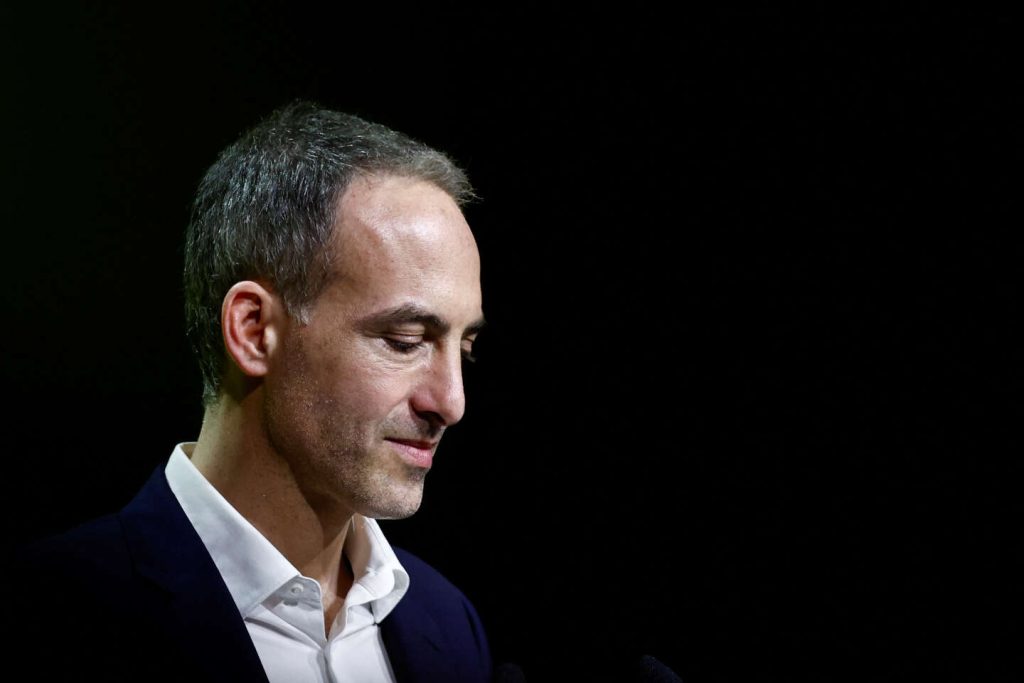Tensions were high a month before the European elections as Euro MP Raphaël Glucksmann, the head of the Socialist Party (PS) and his Place publique party for the European elections, had to leave the May 1st parade organized in Saint-Etienne shortly after arriving. He was booed and insulted by protestors who threw paint at him. The planned meeting with supporters after the parade was also cancelled. Glucksmann condemned the violence and criticized the protestors, mentioning that he saw flags of La France insoumise and Révolution permanente, Trotskyist movements, among the hecklers. He accused them of choosing him as their adversary.
Despite the incident, Glucksmann reiterated his condemnation of the violence in Gaza while also advocating for an end to the bloodshed. He emphasized the importance of not resorting to slogans that deny the existence of Israel while standing against the actions of Hamas. Jean-Luc Mélenchon, a three-time presidential candidate, expressed disapproval of Glucksmann’s expulsion and accused him of trying to divert attention from the real enemy, the extreme right. This incident created a media diversion and allowed Glucksmann to portray himself as a victim, according to Mélenchon. The political drama unfolded just weeks before the European elections, adding tension to the already heated campaign.
The altercation between Glucksmann and the protestors highlighted the growing polarisation and animosity in French politics, especially in the lead up to the European elections. Glucksmann’s association with the Socialist Party and his stance on various issues, including the situation in Gaza, have made him a target for criticism and attacks from different factions within the political landscape. The incident at the May 1st parade exemplified the challenges faced by politicians in France as they navigate a volatile and divided electorate. The role of social media in amplifying these conflicts and shaping public opinion also came to the forefront in this incident.
The incident also shed light on the challenges faced by political figures in engaging with a polarized electorate and addressing controversial issues such as the conflict in Gaza. Glucksmann’s efforts to condemn the violence while also advocating for a peaceful resolution underscored the complexities of navigating such sensitive topics in a charged political environment. The incident raised questions about the role of political violence in democratic societies and the impact of extremist rhetoric on public discourse. As the European elections approached, the incident served as a stark reminder of the deep divisions within French society and the need for constructive dialogue and engagement to bridge these gaps.
In the aftermath of the incident, Glucksmann’s handling of the situation came under scrutiny, with both supporters and critics questioning his response and the implications for his electoral campaign. The incident also sparked debates about the state of democracy in France and the challenges faced by politicians in addressing the concerns and grievances of a diverse and often polarized electorate. The incident at the May 1st parade captured the attention of the media and the public, highlighting the intense scrutiny and pressure faced by political figures in the lead up to the European elections. The incident served as a stark reminder of the deep divisions and tensions within French society, underscoring the need for political leaders to engage in meaningful dialogue and reconciliation efforts to address these challenges.


